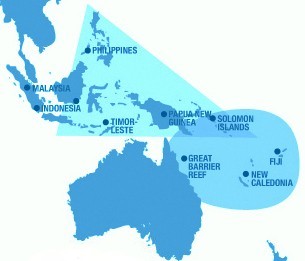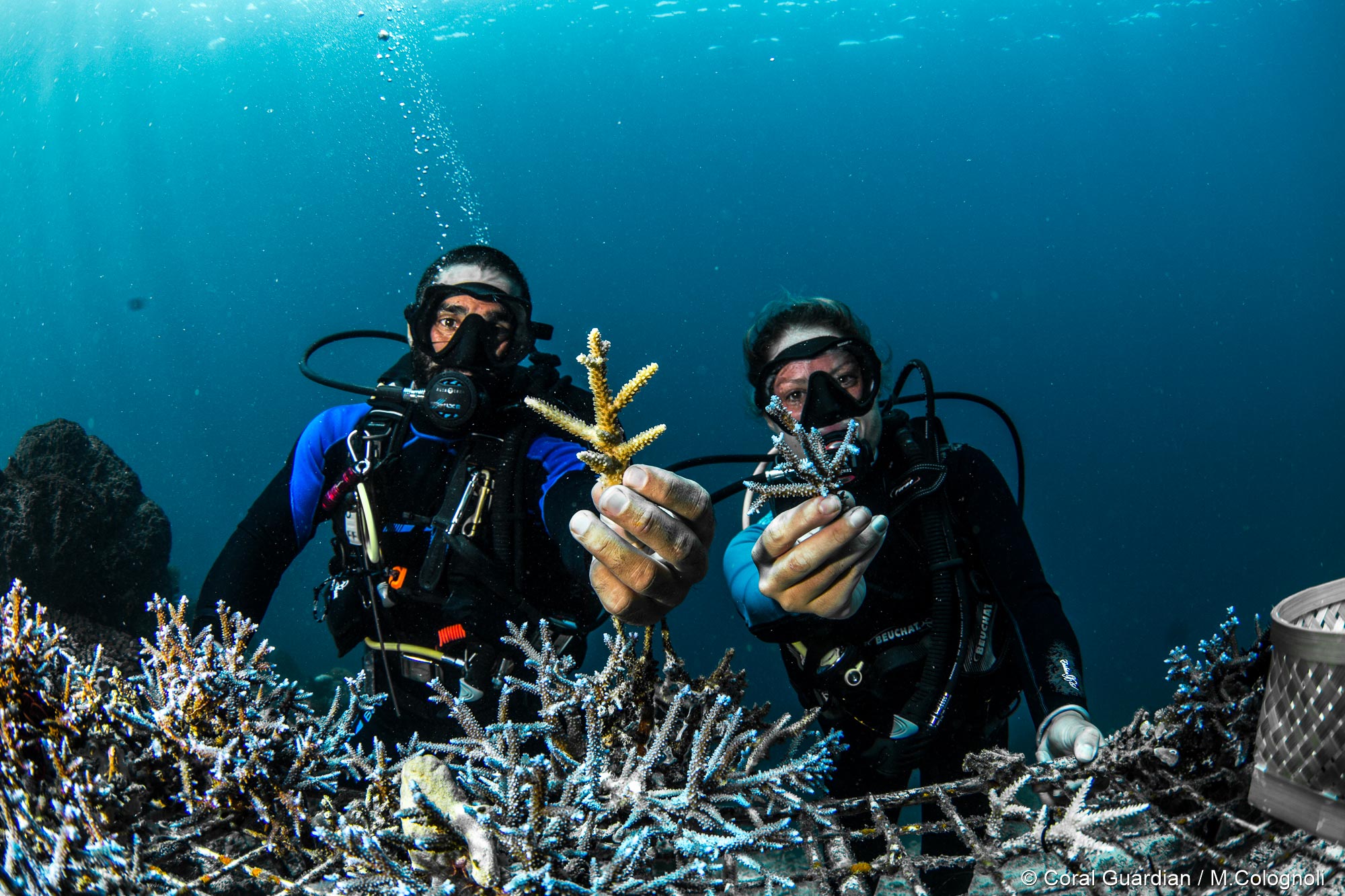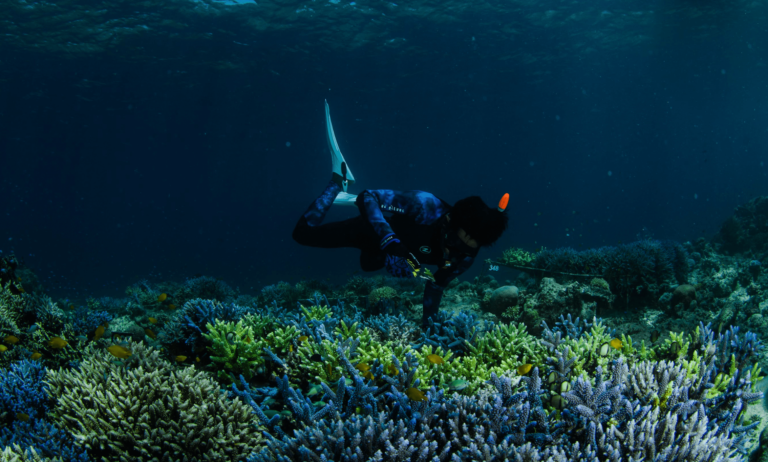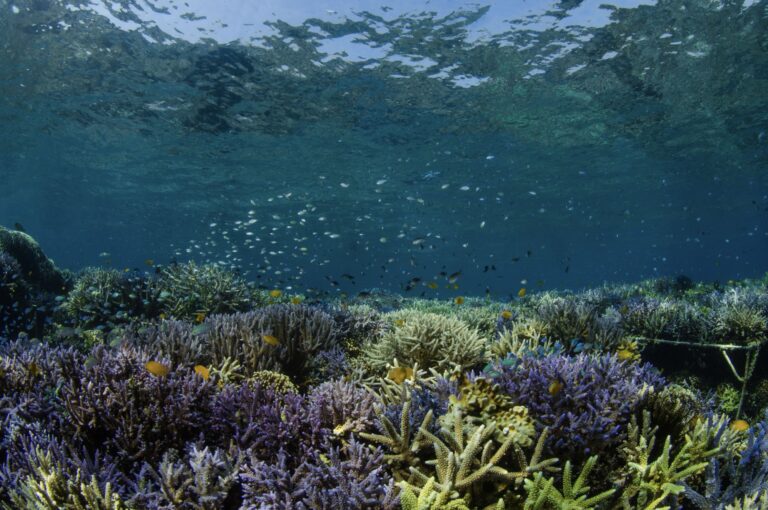

Corals, essential to our ocean’s health, are in danger.

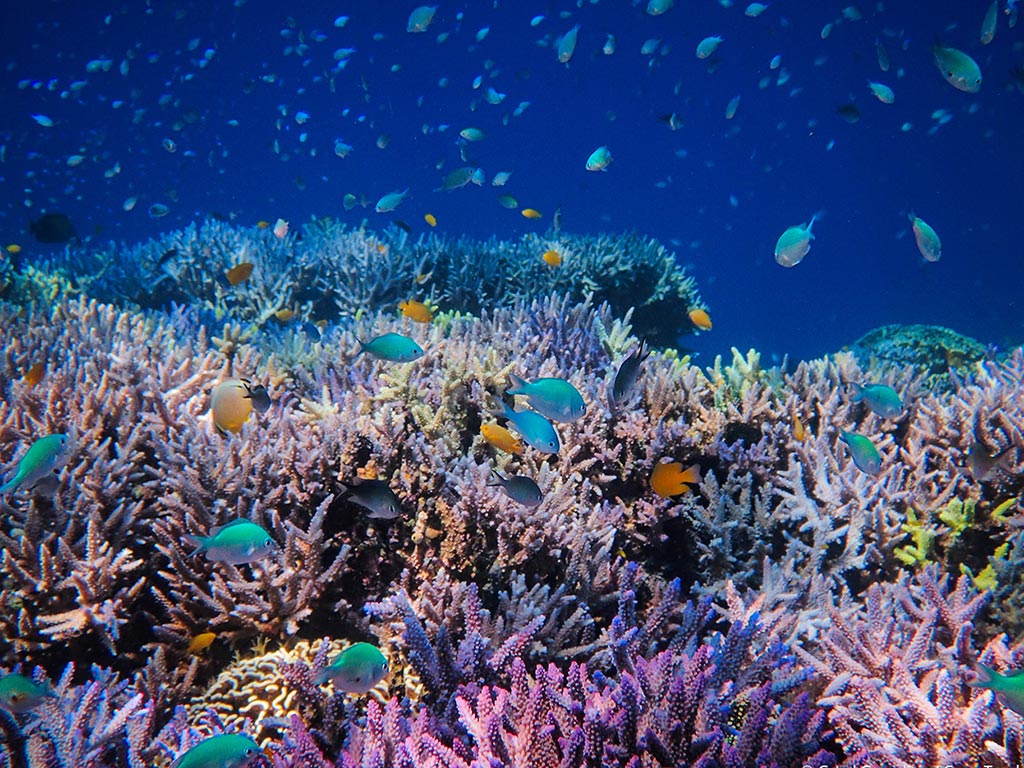
Corals represent an exceptional biodiversity, and are present in both tropical and cold waters. Scientists estimate that coral reefs are home to more than 25% of marine species and yet they cover less than 0.2% of the ocean. Corals are also at the core of the formation of other ecosystems.

Reefs only cover 0.2% of the oceans. Yet they protect more than 150,000 km of coastline in more than 100 countries and territories. They can form a barrier that absorbs wave energy, particularly during extreme weather events such as storms or hurricanes, and so help to reduce coastal erosion.
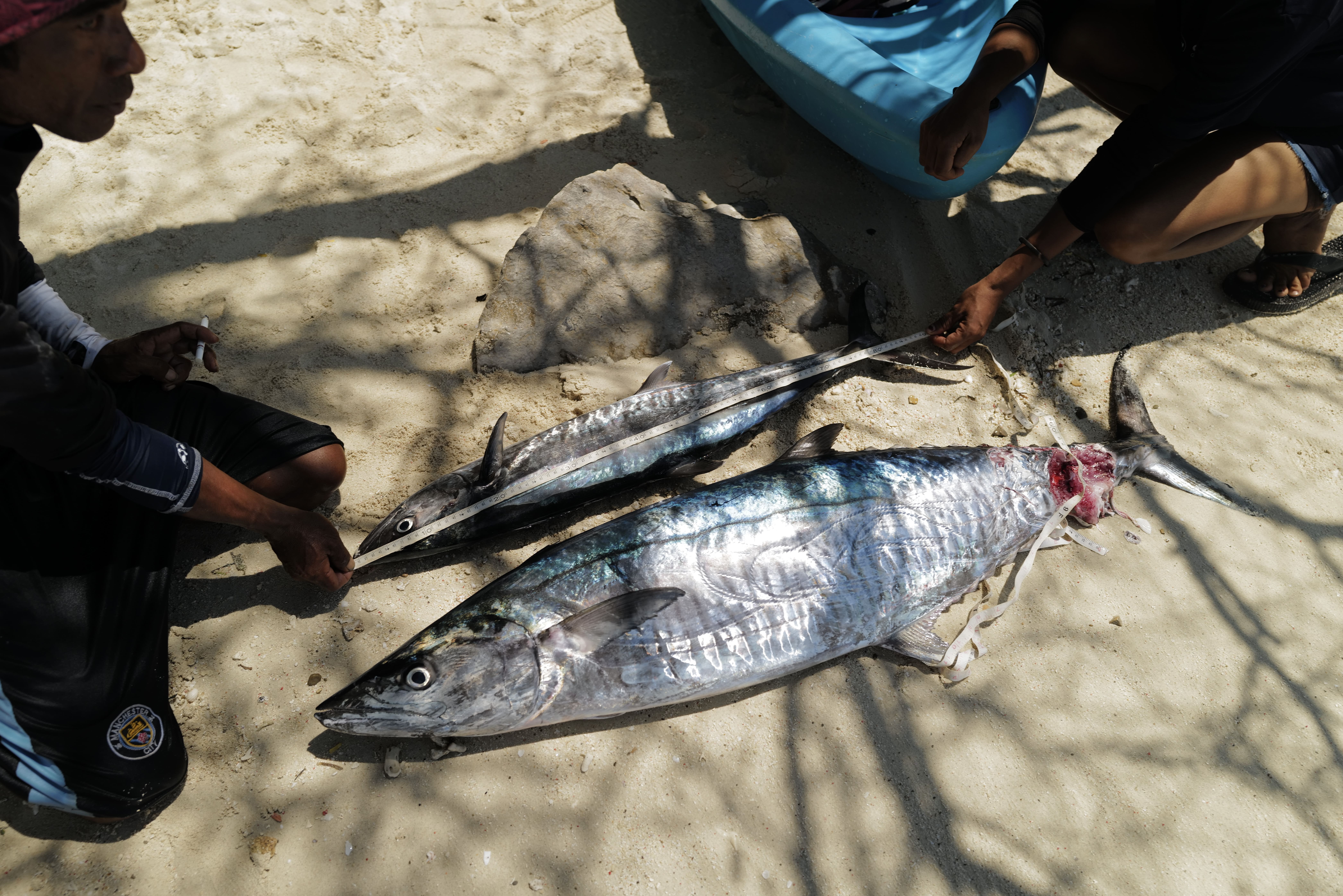
Approximately 1 billion people live within 100 kilometres of coral reefs and are likely to benefit from their ecosystem services. 500 million people directly depend on them, i.e. almost 8% of the world’s population, in terms of coastal protection, fisheries resources and tourism.

Reefs are often an essential part in the economy of the tropical regions where they are located. Indeed, they attract divers, snorkelers, recreational fishermen and beach and white sand enthusiasts.

Millions of people around the world depend on reefs for employment. According to an estimate, the total annual net benefit of the world’s coral reefs is $29.8 billion.

Corals also contribute to research advancements, in particular by providing interesting possibilities for the treatment of various diseases.
Corals are very sensitive to temperature changes. 1 to 2°C increase in water temperature above the usual maxima is enough to cause massive bleaching. If the temperature rises last for several weeks, the corals will eventually die.
With the increase in greenhouse gas emissions, the Earth is warming. The average global temperature has already risen by 1°C compared with pre-industrial times. 90% of this excess heat is being absorbed by the oceans, rising ocean temperatures as well. IPCC forecasts predict a global temperature rise of 1.5°C by 2050.
Tools for displaying ocean temperatures derived from satellite data (such as those offered by the Copernicus Marine Service) make it possible to identify trends in real time and in the past on various spatial scales. For example, to see how marine heatwaves are moving and to prepare relevant adaptation management actions. They can also be used to observe the temperature history of an area and estimate the tolerance of the organisms present, for example.

The absorption of CO2 by the oceans plays a fundamental role in global climate regulation. With the exponential increase of CO2 emissions by human activities, the dissolution of CO2 in the ocean has also rised (25% of CO2 is absorbed by the oceans), causing ocean acidification. The map above shows changes in ocean pH between 1985 and 2022. The blue and purple colours show the areas where ocean acidification has been greatest, such as the eastern Pacific, the Indian Ocean and certain polar zones.
Acidification has a concrete impact on the proper development of organisms with calcareous skeletons, such as corals (both tropical and cold-water), and therefore on coral ecosystems. In more acidic waters, calcareous skeletons become weaker, and the generation of new skeletons more difficult.
Chemical wastes such as oil, fertilisers, sewage and toxic chemicals can be released directly at sea or indirectly (via rivers). This causes an enrichment of nutrients that promote the formation of algae. The supports used by coral larvae are smothered by a proliferation of algae thus affecting their development.
Plastic pollution (macro and micro plastics) carries bacteria and parasites that impact corals and marine biodiversity. Plastics can be confused with plankton by marine organisms and swallowed, damaging their health. Plastics suffocate marine biodiversity. The pollution that reaches the oceans comes from land and coastal areas.
In some countries, the use of home-made bombs for fishing is disastrous. It leads to the destruction of reefs: all that remains is unstable rubble, making it impossible for coral larvae to recolonise. It is also a social problem: fishermen have to go further out (at higher cost) and take more risks to find fish. Potassium cyanide also destroys all life in the reefs. It is used to harvest species destined for the aquarium market in Europe and the United States, or for catering in Asian countries.
Fishing gear that scrapes the seabed, such as trawls and dredges, destroys habitats as it passes through. Their use throughout the world is endangering coral ecosystems, both in shallow waters and deep corals. These methods are not selective at all, picking up everything in their path, which leads to the over-exploitation of marine resources.
The increase in the demand for fish has resulted in the overfishing of reef fish which in turn affects the balance of the coral ecosystem. For example, overfishing of herbivorous fish can lead to levels of growth in algae, which asphyxiates the coral by depleting it of oxygen.
More than 100 countries benefit from reef-related tourism and it contributes to more than 30% of export earnings in more than 20 countries. Moreover, reef tourism is on the rise. Indeed, reefs attract divers, snorkelers, recreational fishermen and white sandy beach-lovers. Thus, they are an essential part of the economy for the regions where they are located. Each year, tourism to coral reefs (hotels, restaurants, operators, transport, tours, etc.) is estimated at 36 billion dollars worldwide.

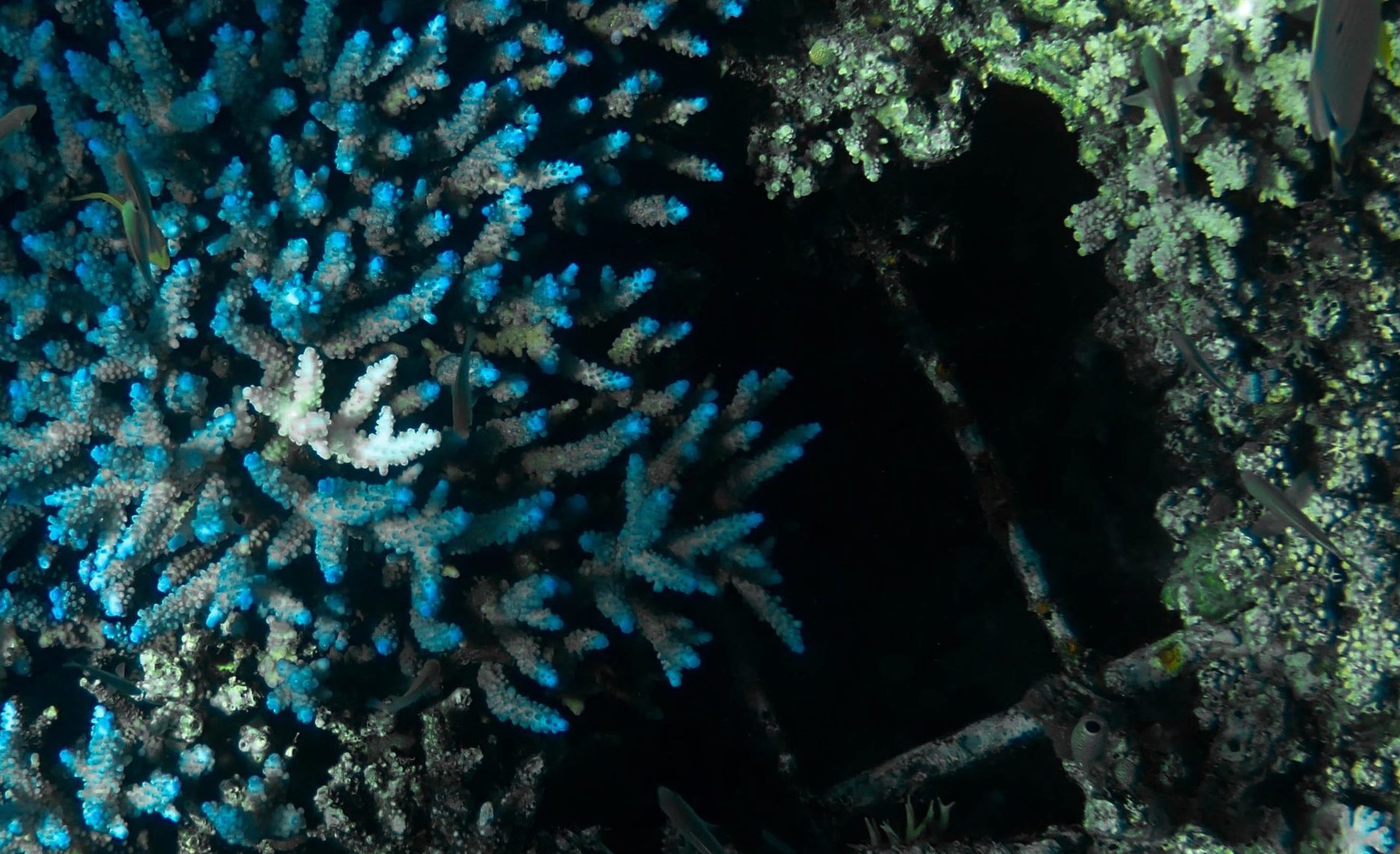

Around the world, coral reefs are facing a degradation driven by global and local human-derived pressures including climate change, coastal development, pollution, amongst others. In…
31 March 2021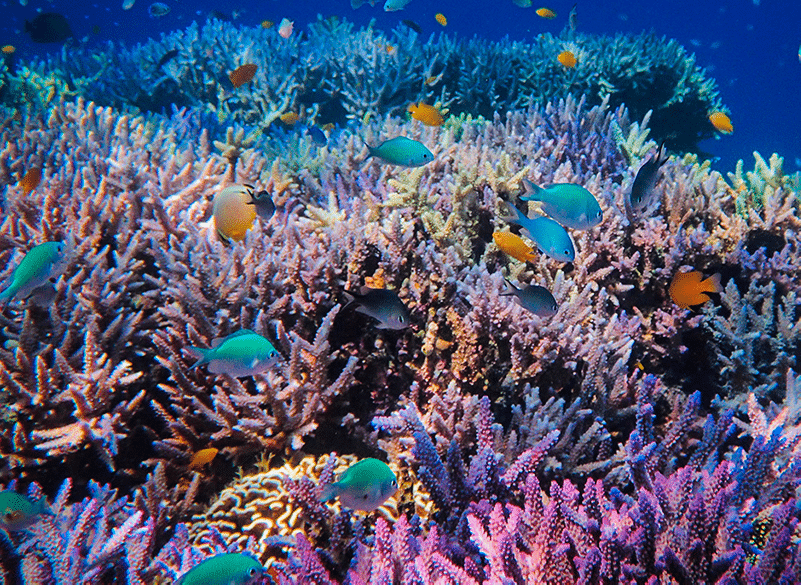
Written by Jeanne Kault, Florina Jacob and Olivier Detournay. Acknowledgments to Eric Röttinger. Coral reefs cover an area of 284,300 km2 (Spalding et al.,…
21 February 2022